
Welcome Back, Snowbirds!
Published October 2018
Editor’s Note: As the snowbirds return to Florida, FLCAJ sought out several community association service providers to find out what advice they have for the returning residents. The counsel touches on many important topics, so read, learn, make changes to community operations, and enjoy your stay in the Sunshine State!
 Get Everything Back Up and Running
Get Everything Back Up and Running
By Regan Marock
If you’ve been away for the summer and no one has been regularly checking on your residence, there are several things you should do to get everything back up and running.
- Let your association know that you’re back and would like to be updated on any happenings that occurred while you were away.
- Turn your water heater back to regular mode from “vacation” mode.
- Make sure that all smoke detectors are working and have fresh batteries.
- Run the water in all of your fixtures to empty the pipes.
- Replace the filter in your air conditioning unit.
- Let your credit card companies know that you are home.
Hurricane season does not end until November 30th, so please be sure that you know your evacuation routes and have taken precautions to secure personal belongings, important papers, and needed medications.
For more information on AKAM On-Site, contact Regan Marock at (954) 843-2526 or rmarock@akam.com, or visit akam.com.
 Four Options to Fund the Costs to Repair Damage from Hurricanes
Four Options to Fund the Costs to Repair Damage from Hurricanes
By Lisa Elkan, VP and Association Financial Partner
Repairing the damage sustained from Hurricane Irma was a wake-up call for many associations. The question is, how may an association pay for these repairs?
- The cheapest and easiest way for an association to pay for the repairs is to simply write a check.
- If the association has the luxury of being able to wait to complete the repairs, they may wait/stage the repairs over several years.
- If you think owners will be upset when the annual assessment is raised, imagine how they’ll feel when you are required to pass a special assessment.
- Pass a special assessment combined with an association loan—When an association takes out an association loan in conjunction with a special assessment, the owners will now have the ability to pay the special assessment over a longer period of time, while the association is able to complete the repairs right away.
For more information on Alliance Association Bank, call (888) 734-4567 or visit www.allianceassociationbank.com.
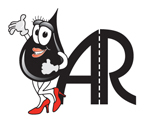 What Did the Summer Rains Change?
What Did the Summer Rains Change?
By Connie Lorenz
Welcome back to all of our northern residents. We surely have been busy this summer trying to get things taken care of while you were away. The weather wasn’t really in our favor this season, so some of the projects might have been delayed. Sorry about that! It’s hard to work in a downpour!
Now that you are back, it’s a great time to walk through your community and see what the summer rains might have changed in your parking lots and roadways. With some of the gully washer rains we had, there is a good possibility that a new depression or dip might have shown up. Those of us who live here year-round might miss some of these things as they happen quite slowly and may have just become a normal part of our community. Your fresh eyes might be the difference between preventative asphalt maintenance and crisis asphalt management, which means more dollars!
For more information on Asphalt Restoration Technology Systems, call (800) 254-4732 or visit www.asphaltnews.com.
 What Should You Check?
What Should You Check?
By Mariann Gerwig
So, you now get to enjoy the winter in Florida, away from the cold and snow! But, what are some of the things you should check around the building to make sure that proper maintenance is preserving your beautiful home and your investment?
- Check the exterior of the building for any signs of concrete deterioration. This only gets worse if left unchecked. It is strongly suggested that you have a structural engineer inspect the building every few years.
- Review how long it has been since the building has been painted. Exterior painting by a reputable contractor using the right products can protect your building.
- Make sure that you do not see cracks anywhere on the exterior that could allow moisture to seep in.
- Sliding glass doors and shutters need to be maintained regularly to make sure they work properly.
For more information on Carousel Development & Restoration Inc., call (561) 272-3700 or visit www.cdri.net.
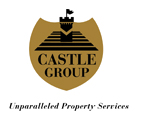 “Snowbird” Appreciation
“Snowbird” Appreciation
By Beth Miller
It is estimated that about one million snowbirds spend time in Florida each year, making a tremendous positive financial impact on local economies. Shops, restaurants, service businesses, and doctors’ offices and pharmacies benefit greatly from their patronage.
While tourists contribute to some of the same segments of the economy, snowbirds make additional contributions as many own real estate in our community associations. They pay property taxes and monthly or quarterly assessments all year round for services they only use a portion of the year. Our economy and, in many cases, our associations depend on seasonal residents and their participation in our communities.
Whether arriving by car, plane, or train, our snowbird friends will soon be arriving for the upcoming season. As you wait in increased traffic, whether on the road or in a restaurant, don’t forget how much they benefit us year-round, and give them a warm welcome!
For more information on Castle Group, call (844) 815-5321 or visit www.castlegroup.com.
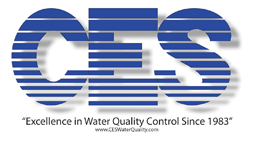 Pool Winterization—Florida Style!
Pool Winterization—Florida Style!
By Alvaro Mendoza
Often pool winterization means draining, covering, or otherwise hibernating your pool until spring. In Florida it’s completely the opposite—preparing for the heaviest bather loads, keeping the pool temperature 15°F above where nature wants it, and getting your mechanical systems ready for another year.
- Ready for peak season? Work with your maintenance staff to see what challenges they are having. The biggest culprits are pumping, filtration, heating, and treatment systems. A quick audit can identify any issues needing to be resolved.
- Heating affordably? If your heater hasn’t been tuned up, you are normally burning two to three times more fuel than necessary. A quick tune-up will resolve this. Also, check if a pool cover is right for you and save an additional 66 percent on heating. Try to keep pools at a reasonable 82–84°F temperature.
- Modernizing? If you modernize, there are lots of self-funding options like saline, UV, energy-efficient pumping systems, water-saving filters, and remote control of your equipment room.
For more information on Commercial Energy Specialists (CES), call (800) 940-1557 or visit www.ceswaterquality.com.
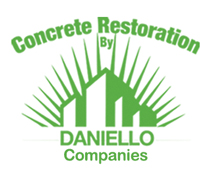 Phases In Hiring An Engineer For Concrete Restoration Repairs
Phases In Hiring An Engineer For Concrete Restoration Repairs
By Lou Daniello
- Phase 1—The engineer performs a survey of the condition of the building.
- Phase 2—The survey engineer prepares a bid package for qualified contractors and invites them to bid on it. After the three best contractors are chosen by the engineer and association board or manager, then they should be interviewed separately.
- Phase 3—The engineer prepares the necessary documents for the contractor to apply to the building department for the required permit.
- Phase 4—The engineer makes inspections, usually twice per week, for the following items:
- Mark off areas that need repair for the contractor.
- After excavation, inspect conditions of steel and forming and authorize concrete placement.
- Inspect repairs and approve the contractor’s application for payment.
- Phase 5—The engineer makes a final inspection of the entire project and issues a Letter of Completion signed and sealed for the building department to close out the permit. The engineer’s contract with the association or owner should spell out the fee for each of the phases.
For more information on Daniello Companies, call (888) 370-4333 or visit www.concreterepairing.net.
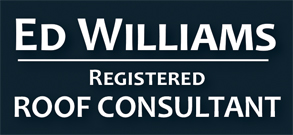 There Is Work to Be Done
There Is Work to Be Done
By Ed Williams, RRC
If you are a returning board member who has been away for the summer, then there is probably work to be done for the association. October is usually the time when budgets are prepared and finalized for the upcoming year.
- Was there a hurricane or other significant weather event that occurred while you were gone?
- Was there damage to the building such as the roof, windows, or walls?
- Are there upcoming capital expenses that need to be
We think it’s always important to take stock of your buildings and infrastructure annually.
As far as the roof is concerned—
- Do you know how long it will last and how much it will cost to replace?
- Is money being set aside annually for replacement?
- If not, is there money already in reserves, and is it enough?
If you don’t know the answers to these questions, maybe it’s time to ask a professional for help.
For more information on Ed Williams Registered Roof Consultant, call (772) 335-5832 or visit www.edwilliamsregisteredroofconsultant.com.
 Assess Your Safety and Security
Assess Your Safety and Security
By Brie Peterson
Welcome back, snowbirds! Community safety and home security are some of the first things you should re-evaluate when you return. Here are some helpful tips:
- Is landscape around your home or throughout the community overgrown? When plants get too bushy or are not spaced out, they create hiding places for potential criminals.
- Light it up! If bulbs are burnt out, replace them as soon as possible. Keeping your home and communities well-lit at night will deter trespassers and burglars who do not want to be seen.
- Check all doors and windows at your home/unit and amenities. Make sure all locks and access control points are operable.
- Have an assessment meeting with your board and property manager. Discuss any security incidents that occurred over the past couple of months and some solutions to explore that will improve the overall security of the community.
For more information on Envera Systems, call (855) 380-1274 or visit www.EnveraSystems.com.
 Tips for a Worry-Free Return
Tips for a Worry-Free Return
By Mark S. Martel, LCAM, Regional Director
As we prepare to welcome you back to the Sunshine State, consider the following tips for a worry-free return.
- Don’t forget to forward your mail, set up autopay for your bills, suspend newspaper delivery, transfer prescriptions, and contact your Florida doctors.
- Reach out to your church, clubs, and other social groups to let them know when you’re heading back.
- Contact your community’s management team. This helps the staff prepare for your return and prompts them to reconnect services to your unit that had been suspended.
- If you plan to decorate for the holidays, talk to your management team to ensure that you’re in compliance with the association’s rules as they may have changed while you were away.
- Check with management for upcoming association meeting dates and times. October through April is when most budget meetings, annual meetings, and elections typically occur.
Welcome back!
For more information on FirstService Residential, visit www.fsresidential.com.
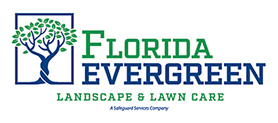 Fall Focus on Turfgrass
Fall Focus on Turfgrass
By Bob Boyd
Diseases such as brown patch, leaf spot, rust, and take-all root rot can adversely impact the turf on your property. Fall is an especially important time to monitor conditions and quality of the lawn. If signs of discoloration appear, it may be possible that disease is present. Drought, cold weather, and excess water may cause areas of the lawn to be brown or yellow, so proper diagnosis is key to identifying the problem prior to chemical treatment.
Brown patch is a common fungal disease in warm-season turfgrasses such as Zoysia grass and St. Augustine. If not corrected in the spring, it may “disappear” in summer due to rapid growth which fills in the affected area, only to return in the fall. Cooler temperatures and damp weather are the primary cause of this fungus. Prevention of this problem includes correct watering, proper mowing, and best management practices regarding fertilization and pest control.
For more information on Florida Evergreen Landscape & Lawn Care, call (239) 561-9184 or visit www.FloridaEvergreen.com.
 The Tell-tale Signs of Bat Colony Infestation
The Tell-tale Signs of Bat Colony Infestation
By John Greenwood
We’ll explain here how to tell if you have had a family (colony) of bats move into your condominium while you were away.
Bat Droppings (Guano)—typically consist of very small torpedo-shaped droppings, often dark brown in color.
Bat Urine—contains uric acid, which—over time—can begin to attack a building’s structure. It can often be seen leaking down the wall from an entry or roosting point.
Oily Stains—Bats have a gland on their chest which secretes oil. When entering a roost site, they often rub up against the side of the building, and some of this oil is transferred to the building.
Chit-chat—In the roost, their “social” chatter is certainly possible to hear (sometimes described as chirping).
Odor—A bat infestation exudes a musty, ammonia-type smell, and the larger the colony, the more pervasive and onerous the smell becomes.
For more information on Friends of Bats, visit www.friendsofbats.com, call (888) 758-BATS (2287), or email john@friendsofbats.com.
 Board Transparency to Unit Owners is Key
Board Transparency to Unit Owners is Key
By Rebecca Newman Casamayor
In this digital age, it can be more convenient for board members to simply communicate about association business via email rather than in person, especially when some board members don’t live on-site year-round. However, it is important for boards and management to remember that Florida law requires association business to be conducted at properly noticed board meetings, where unit owners can also attend and voice their opinions. The board should take care not to deliberate over association business or take votes via email, which should be done at open meetings (unless there is a legally privileged issue, which can be discussed at a “closed-door” board meeting). Conducting open discussions at board meetings also helps to document the board’s exercise of its business judgment via the meeting minutes, which can be crucial if a decision is later questioned.
For more information on Haber Slade P.A., visit www.haber.law. Rebecca can be reached by e-mail at rcasamayor@dhaberlaw.com or by phone at (305) 379-2400.
 Call, Plug In, and Check the Remote Batteries
Call, Plug In, and Check the Remote Batteries
By Heather McAuley
Welcome back to your Fision® Fiber Optics services! Here are a few important reminders for you:
- If you’re on seasonal suspension, give us a call to reactivate your services! Operators are standing by 24/7.
- Plug in any unplugged devices like your Internet router, TV, or set top boxes. If you see lights blinking, you should be receiving service.
- Check the remote batteries! If they’re not working, be sure to replace them with a fresh pair.
- Not seeing a picture? Press the Source or Input button on your remote to find the correct input for Fision TV.
- If your TV shows a blue loading screen, expect a short delay for services to be restored as features are being loaded.
Still having trouble? Call us at 1-(800) 355-5668 to speak with a fully-trained, U.S.-based agent who will be happy to assist you.
From everyone here at Hotwire Communications, welcome back!
For more information on Hotwire Communications, visit hotwirecommunications.com.
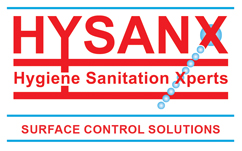 Your Fitness Room Is Too Clean
Your Fitness Room Is Too Clean
By Joe Ziccardi
Have you ever wondered how clean your fitness room really is? Your housekeeping maintains it, and you have sanitizer for residents to use. So, what’s the issue? It’s too clean!
The overuse of cleaning and sanitizing products used on exercise equipment in fitness rooms leads to a microscopic build-up of residue on surfaces, resulting in harmful effects from allergens, mold, and bacteria including MRSA in your facility. Having developed a proprietary technology for removing surface residue along with antimicrobial protection to repel and shield surfaces from harmful allergens, mold, and bacteria, HYSANX Surface Control Solutions offers a quarterly service program which includes verifiable testing to ensure your fitness room is safe and protected.
For more information or to schedule service contact your HYSANX representative at sales@hysanx.com.
 Ensure Favorable Outcomes for Exterior Repairs
Ensure Favorable Outcomes for Exterior Repairs
By James Dolby
As winter arrives and the snowbirds make their way back to Florida, associations and their members will begin to uncover exterior maintenance and repair needs. There are several important factors for associations to consider in order to ensure favorable outcomes when addressing exterior repairs. The most important factor is engaging an experienced restoration firm to correctly identify the source and scope of repair. For example, water intrusion might be as simple as building weep holes plugged by faulty maintenance that might require a simple inexpensive repair, versus a complete removal and replacement of the building joint sealants. A second important consideration is using contractors who involve the manufacturer’s representatives to confirm the product selected and installation methods are meeting the manufacturer’s requirements for warranty. These two important considerations will give associations cost effective solutions with corrective results. IMR specializes in exterior waterproofing and restoration and provides building inspections and free consultations.
For more information on Innovative Masonry Restoration (IMR), call (612) 548-5589, visit www.imrestoration.com, or email info@imrestoration.com.
 Jumpstart Your Winter Residence
Jumpstart Your Winter Residence
By Kevin M. Carroll, President & CEO
Returning homeowners have plenty to do to jumpstart their winter residences. Turning on services such as water, phone, and cable is a good start, as is alerting your alarm company of your return. However, your home should be inspected immediately for weather-related and/or pest damages. To avoid and detect any potential leakage problems, inspect pipes, hose bibs, and washing machines. Be sure to check the air conditioning system/heating vents and replace any dirty filters and screens. Homes should be checked for any evidence of attempted forced entry. Check for any markings on your door frame around the lock and window screens that may have been tampered with, and for missing spare keys. Also, don’t forget to check your car if it sat idle for some time. Batteries may need to be checked and possibly replaced if the car won’t start. Once these items have been addressed, sit back and enjoy your winter home in Florida!
For more information on Lang Management Company, call (561) 750-8800, email kmc@langmanagement.com, or visit www.langmgmt.com.
 Property damage? Stake your Claim!
Property damage? Stake your Claim!
By Amy D. Boggs, Esq.
Associations pay dearly for property insurance that they rarely use. Why? Property managers and boards often don’t realize that damage is covered by insurance, and they wind up using association funds for the repair. The board owes it to the association to explore coverage for any damage to the association’s property, so be proactive!
- Document damage and emergency work through photographs, receipts, and video.
- Don’t rely on the agent or the insurance company to tell you what is covered. You need professionals working for the benefit of the association, not the insurance company.
- Meet with a professional public adjuster or insurance attorney about insurance coverage before starting the repairs. Law firms like mine work on a contingent fee basis, so there is no fee to review your claim. Plus, we pay for the professional engineers and contractors needed to assess your claim. Don’t let your insurance go to waste—know your rights!
For more information on The Law Office of Amy Boggs, call (727) 954-8833 or visit www.amyboggslaw.com.
 Water Activity Safety Tips
Water Activity Safety Tips
By Dee Belet, Director–NE Florida
It’s that time of year when snowbirds will be traveling back to sunny Florida! We’re excited to welcome these residents back to their winter homes.
We wanted to provide some safety tips for water activities as these are popular for returning residents.
- A red tide outbreak is ravaging the Gulf Coast. If heading to the beach, wear shoes on the sand to protect your feet from debris. Avoid swimming in red tide if you have sensitive skin or health issues.
- Warm weather can allow the dangerous amoeba Naegleria fowleri to flourish. Avoid swimming in fresh water during summer, but if you do, wear nose clips and keep your head above water.
- Alligators can be active in the summer. Never feed a gator, and if you do see one, keep your distance. They can move quickly and are very powerful.
We hope these precautions help you stay safe while you return home to enjoy fun in the sun!
For more information on Leland Management, call (888) 465-0346 or visit www.LelandManagement.com.
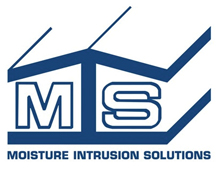 Welcome Back; Irma Never Left
Welcome Back; Irma Never Left
By Bruce Wingfield
This time the damage was widespread, and the insurance claims historic in numbers. In the past, the insurance claims were settled in a few short months. This time the insurance companies are ready to fight it out in third-party mediation or court.
Windows still leak, causing mold and drywall damage. Eventually associations must turn to another difficult problem, finding contractors to perform the work. Since there are different sizes, styles, etc., you will be practically ordering custom windows. Unlike roofing, where different sizes are not a problem, the lead time will seem like forever.
Immediately find a company to manage your project. Don’t just call for window bids. Window installation is very time consuming, and more workload on your CAM manager leads to problems. Building envelope consultants, architects, and engineers are eager to help. These are the bids you need now. First come, first served.
For more information on Moisture Intrusion Solutions, call (239) 249-5267 or visit www.moisturesolutions.net.
 Background Screening
Background Screening
By David Fambrini
Technology is quickly finding its way into the offices of condominiums and HOAs throughout Florida. For example, effective January 1, 2019, all condominium associations with 150 units or more must post digital copies of the association rules and its recorded bylaws on its website.
Background screening is highly regulated, and Screening Link helps associations comply with all the state and federal laws which govern them by offering a fully compliant, web-based process that takes the background screening logistics out of the management office and onto our platform. Screening Link provides the following services:
- Convert the association residency application and documents into a secure online application which the applicant can complete anytime from anywhere.
- Collect all the applicant’s data and supporting documents.
- Collect the required fees all online.
Screening Link works with communities nationwide in providing criminal backgrounds, credit histories, and other information required for association background screening.
For more information on Screening Link, call (954) 472-6994 or visit www.screeninglink.com.
 HOA/COA Boards Should Advise Snowbirds on How to Protect Their Nests While Away
HOA/COA Boards Should Advise Snowbirds on How to Protect Their Nests While Away
By Nicole Bennetsen
Sentry Division Manager Nicole Bennetsen from the Sarasota office explains how beneficial it is for boards to provide homeowners with checklists and educate them about how to protect their home or condo while vacant. There should be a concentrated communications campaign to departing residents before the end of the season. Providing a checklist to homeowners can protect against some of the most common maintenance issues that vacant units experience, like water intrusion from leaking pipes, overflowing toilets or shower pans, and overflowing or draining washing machines in other units that leak into theirs. The biggest tip boards can give to owners is to have someone—whether it is a friend, or they invest in a professional service—to check in on their property regularly. It won’t always prevent an accident from happening, but it can prevent more costly, widespread damage from occurring.
For more information on Sentry Management, call (800) 932-6636 or visit www.sentrymgt.com.
 New Law Gives Green Light for Electric Vehicle Charging Stations in Condominiums
New Law Gives Green Light for Electric Vehicle Charging Stations in Condominiums
By Nicole R. Kurtz
The new additions to Florida’s condominium laws regarding electric vehicles stipulate that associations may not prohibit a unit owner from installing an EV charging station at the owner’s expense and within the boundaries of their designated parking area. However, an association may require that the installation comply with all applicable building codes, recognized safety standards, and any reasonable architectural standards that it may adopt. In addition to paying for the installation and electricity costs, the installing owner will also be responsible for any hazard caused by the charging station and any liability insurance for the charging station.
As this new law is now in effect, association boards of directors and property managers should be prepared for requests from unit owners to install EV charging stations, and they should work with qualified and experienced community association attorneys to develop an action plan for handling such requests.
For more information on Siegfried, Rivera, Hyman, Lerner, De La Torre, Mars & Sobel P.A., visit www.srhl-law.com or www.FloridaHOALawyerBlog.com, or call (305) 442-3334.
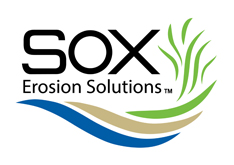 Constant Vigilance Is Key to Maintaining Healthy “Living Shorelines”
Constant Vigilance Is Key to Maintaining Healthy “Living Shorelines”
By Brian Fischer
As the hurricane season comes to a close, it’s important to view shorelines in your community, whether you came through this period unscathed or experienced storm-related damage.
Shoreline erosion is inevitable, and regular vigilance is required to avoid dangerous conditions and costly repairs. Some of the telltale signs of erosion include collapsed land and exposed cables.
Many communities are turning to Shoresox® and Dredgesox®, our patented and affordable shoreline restoration solutions that meet all Best Management Practices (BMP).
A large, knitted open-containment system is filled with pond sediment or blown-in organic media, such as wood chips or mulch. It is folded over and secured to the shoreline with our patented subsurface anchoring system. Once installed, sod or aquatic vegetation can be planted and will root directly through the soft-armored cover, creating a true “living shoreline.” It can reclaim up to three to six feet of unsightly, eroded waterfront property with beautiful, stable shorelines.
For more information on SOX Erosion Solutions, call (833) 222-4769 or visit www.soxerosion.com.
 Welcome Back, Snowbirds—Preseason Lineup
Welcome Back, Snowbirds—Preseason Lineup
By Evan M. Swaysland, VP
As NFL teams are most certainly finalizing their lineups in the preseason, so should you. Now is the time to get your engineer, contractor, painter, and financier on board for the upcoming restoration season. With this team you can scope, schedule, and budget upcoming projects and hit the ground running.
Also, your manager and staff have enough to do; consider hiring a project manager. He or she can manage scheduling, payments, and any project issues that may arise.
Here’s to the upcoming season!
For more information on Swaysland Professional Engineering Consultants, call (888) 264-7732 or visit www.specengineering.net.
 The Clock is Ticking!
The Clock is Ticking!
By Andrea Drennen
Condominium and homeowner associations with 150 units or more have until January 1, 2019, to comply with the state’s new website law. Here’s a list of what’s required on your site:
Privately Accessible to Homeowners
- Governing documents including declaration, articles of incorporation, bylaws, CC&Rs, and any amendments
- A list of executory contracts or documents (contracts that haven’t been fully performed or executed) and a summary of open bids
- Current and pending budgets
- Annual financial reports
- Each board member’s certification, contracts with the association, and declarations of conflicts of interest
- Supporting documents for consideration seven days prior to meetings
- Meeting Notice and agenda 48 hours prior to meetings
Publicly Available
- Annual meeting notice, posted 14 days prior
- Association’s estoppel designee
TOPS Software offers document management with our Owner Access module, which is included with your TOPS [ONE] subscription. Learn more at www.topssoft.com/docx. For details on this Florida law, see our post at https://camblog.topssoft.com/condo-hoa-websites-florida-law.
 Keeping Humidity Levels Constant
Keeping Humidity Levels Constant
By Scott O’Connor
Each year as the migratory cliff swallows return to San Juan Capistrano, the snowbirds return to south Florida. In what condition will they find their “nests”? Many high-rise community owners often turn off their air conditioning systems while not in residence, thinking they are saving money, or they turn up the thermostat to a temperature that is not providing proper ventilation, dehumidification, or cooling. This may cause mold formation. Mold feeds off of many types of surfaces—especially gypsum board, better known as “dry-wall.” The material is composed of gypsum wrapped in paper. When wet or damp, it becomes an ideal place for mold to grow. Mold on the surface can often be mitigated without removal; however, mold that has migrated into the gypsum material has to be removed. Removal of gypsum board is not only messy but very costly and can take months to complete. Recommendation—protect your nest and keep humidity levels between 30 and 50 percent year-round.
For more information on TRC Worldwide Engineering, call (954) 484-7777 or visit www.trcww.com.
 Level the Playing Field
Level the Playing Field
By Stephanie Saunders
When damage has occurred to your community, you’d like to think that the insurance company has your best interests in mind and will help you. Unfortunately, that is not always the case. Many policyholders are not familiar with handling insurance claims, and this is something that an insurance company could potentially take advantage of with a team of professionals who work diligently to try to pay as little as possible for damage repairs to protect their interests. When you hire a public adjuster, you level the playing field and get a team of professionals on your side.
It is our recommendation that you call a public adjuster before filing your damage claim, but if you have a claim that was previously filed, you are still able to have a public adjuster review what was paid to ensure you have not been underpaid. You have three years to reopen hurricane claims and five years on all other claims.
For more information on United Claims Specialists, call (855) 321-LOSS or visit www.UCSFL.com.




